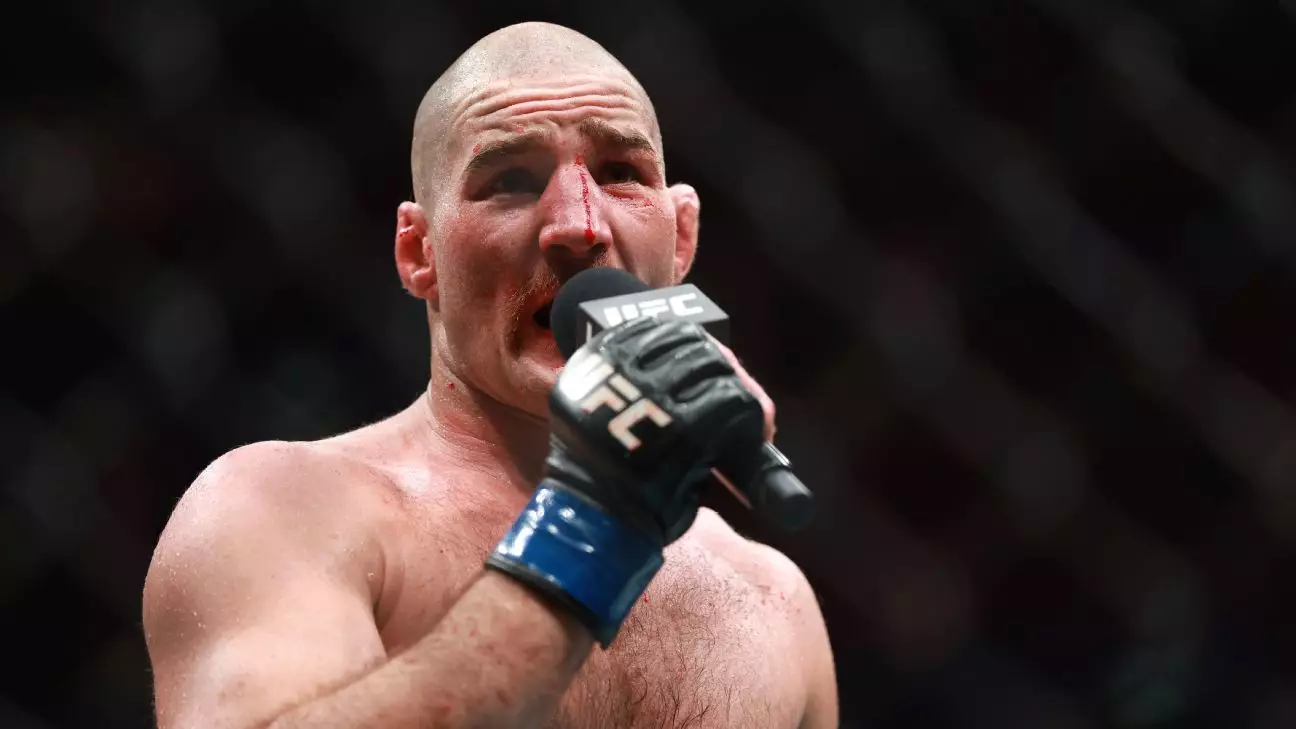In the highly competitive world of mixed martial arts, the relationship between a fighter and their coach can significantly affect performance, both inside and outside the Octagon. Sean Strickland, the former UFC middleweight champion, has recently found himself embroiled in controversy following a devastating loss to Dricus Du Plessis at UFC 312. Strickland’s coach, Eric Nicksick, faced the brunt of criticism after he publicly assessed Strickland’s performance, leading to a potential schism between the two. This discord illuminates the fragile yet essential dynamics of coach-fighter relationships in professional sports.
After suffering a decisive defeat, with the judges scoring the match at 50-45, 50-45, and 49-46, Eric Nicksick made comments that struck a nerve with Strickland. He declared that Strickland’s performance was “underwhelming” and went so far as to suggest that his fighter appeared to be “sleepwalking” during the match. While coaches are responsible for guiding their athletes, Nicksick’s choice to voice his opinions in such a public manner raises questions about the appropriateness of airing grievances outside the training environment.
Strickland pointedly responded via social media, emphasizing the personal nature of their relationship. He stated, “I like Eric; he’s a friend of mine and he’s going to continue to be a friend of mine.” Yet, he made it clear that Nicksick may not be in his corner during future fights. This response signals a fracture in their professional relationship, where support should ideally be consistent, especially after a tough bout.
Digging deeper into Strickland’s struggles, he revealed that his fight camp was marred by a broken arm and a staph infection. These physical ailments hindered his ability to prepare effectively for a title rematch, shedding light on the underlying issues that can impact a fighter’s performance. Strickland called this fight camp “a struggle,” admitting that this mental and physical weight influenced his performance.
Injuries and health issues are frequent hurdles for fighters, but Strickland’s resilience shines through his narrative. He articulated that he kept pushing forward despite knowing he wasn’t at his best, which creates a tension between his ambitions and his reality as an athlete. Such transparency about the difficulties faced during preparation invites empathy from fans and speaks to the gritty nature of the sport.
During his post-fight commentary, Strickland conceded that a broken nose sustained in the fourth round affected his performance. However, he was eager to highlight his resolve, asserting, “I didn’t quit.” This determination speaks volumes about his character, as he explained that he adapted his strategy without succumbing to the pain. Many sports fans appreciate such tenacity, which fuels discussions about a fighter’s mental fortitude and perseverance.
The handling of setbacks is critical not only in combat sports but in any professional undertaking. Strickland’s ability to confront adversity head-on and continue fighting reflects a mindset that resonates with individuals from various walks of life. Despite the loss, his commitment to improvement and self-reflection can inspire both fans and aspiring fighters.
As Sean Strickland moves forward in his career, the question remains: who will be by his side in the corner? While he noted that “we have so many savages that I would love to corner me,” it is apparent that change is on the horizon. Coaches play a pivotal role in shaping athletes, and the right match can lead to success. Strickland’s contemplation on his future coaching arrangements suggests he is not only evaluating his performance but also the dynamics of his training environment.
Although this recent conflict with Eric Nicksick appears to be a significant setback, it may very well lead to a renewed focus for Strickland. As he addresses both his physical injuries and the mental aspects of his performance, his journey underscores an essential truth in sports: growth often arises from adversity. The road ahead may be fraught with challenges, but for a fighter like Strickland, the spirit of resilience is what ultimately defines success in and outside the Octagon.

